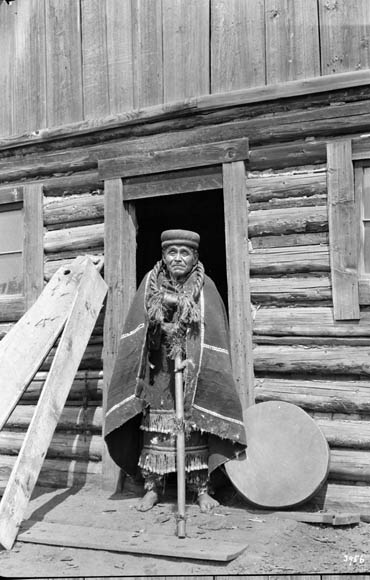Tagish people on:
[Wikipedia]
[Google]
[Amazon]
 The Tagish or Tagish Khwáan ( Tagish: ; tli, Taagish ḵwáan) are a
The Tagish or Tagish Khwáan ( Tagish: ; tli, Taagish ḵwáan) are a Káa goox (Dawson Charlie)
at the Dictionary of Canadian Biography The word ''Tagish'' also refers to the Tagish language, an Athabaskan language spoken by the ancestors of these people. ''Tagish'' means "it (spring ice) is breaking up" and also gave its name to Tagish Lake.
Yukon Native Language Centre
!--Displays the Yukon College homepage-->
Carcross/Tagish First Nation
{{authority control First Nations in Yukon
 The Tagish or Tagish Khwáan ( Tagish: ; tli, Taagish ḵwáan) are a
The Tagish or Tagish Khwáan ( Tagish: ; tli, Taagish ḵwáan) are a First Nations
First Nations or first peoples may refer to:
* Indigenous peoples, for ethnic groups who are the earliest known inhabitants of an area.
Indigenous groups
*First Nations is commonly used to describe some Indigenous groups including:
**First Natio ...
people of the Athabaskan
Athabaskan (also spelled ''Athabascan'', ''Athapaskan'' or ''Athapascan'', and also known as Dene) is a large family of indigenous languages of North America, located in western North America in three areal language groups: Northern, Pacific ...
-speaking ethnolinguistic group
An ethnolinguistic group (or ethno-linguistic group) is a group that is unified by both a common ethnicity and language. Most ethnic groups share a first language. However, "ethnolinguistic" is often used to emphasise that language is a major ...
that lived around Tagish Lake
Tagish Lake is a lake in Yukon and northern British Columbia, Canada. The lake is more than long and about wide.
It has two arms, the Taku Arm in the east which is very long and mostly in British Columbia and Windy Arm in the west, mostly in ...
and Marsh Lake
Marsh Lake (Mud Lake) is a widening of the Yukon River southeast of Whitehorse, Yukon, Canada. It is over 30 kilometres long and ranges from three to four kilometres wide.
The co-ordinates of the lake are , and is 2,147 feet above sea level. The ...
, in Yukon
Yukon (; ; formerly called Yukon Territory and also referred to as the Yukon) is the smallest and westernmost of Canada's three territories. It also is the second-least populated province or territory in Canada, with a population of 43,964 as ...
of Canada. The Tagish intermarried heavily with Tlingit
The Tlingit ( or ; also spelled Tlinkit) are indigenous peoples of the Pacific Northwest Coast of North America. Their language is the Tlingit language (natively , pronounced ),
from the coast and the Tagish language
Tagish was a language spoken by the Tagish or Carcross-Tagish, a First Nations people that historically lived in the Northwest Territories and Yukon in Canada. The name Tagish derives from ''/ta:gizi dene/'', or "Tagish people", which is how th ...
became extinct in 2008. Today Tagish people live mainly in Carcross
Carcross, originally known as Caribou Crossing, ( tli, Nadashaa Héeni) is an unincorporated community in Yukon, Canada, on Bennett Lake and Nares Lake. It is home to the Carcross/Tagish First Nation.
It is south-southeast by the Alaska Highway ...
or Whitehorse
Whitehorse () is the capital of Yukon, and the largest city in Northern Canada. It was incorporated in 1950 and is located at kilometre 1426 (Historic Mile 918) on the Alaska Highway in southern Yukon. Whitehorse's Downtown Whitehorse, downtown ...
and are members of the Carcross/Tagish First Nation
The Carcross/Tagish First Nation (C/TFN or CTFN) is a First Nation native to the Canadian territory of Yukon. Its original population centres were Carcross and Tagish, and Squanga, although many of its citizens also live in Whitehorse. The langu ...
or the Kwanlin Dün First Nation
The Kwanlin Dün First Nation (KDFN) or Kwänlin Dän kwächʼǟn (″Whitehorse People″) is located in and around Whitehorse in Yukon, Canada.
The Kwanlin Dün is the largest First Nation in Yukon. Linguistically, the Kwanlin Dün are affi ...
.
Members of the Tagish First Nation made the gold discovery that led to the Klondike Gold Rush: Keish (Skookum Jim Mason), Shaaw Tláa (Kate Carmack)] and Dawson Charlie, Káa goox (Dawson Charlie).at the Dictionary of Canadian Biography The word ''Tagish'' also refers to the Tagish language, an Athabaskan language spoken by the ancestors of these people. ''Tagish'' means "it (spring ice) is breaking up" and also gave its name to Tagish Lake.
References
External links
Yukon Native Language Centre
!--Displays the Yukon College homepage-->
Carcross/Tagish First Nation
{{authority control First Nations in Yukon